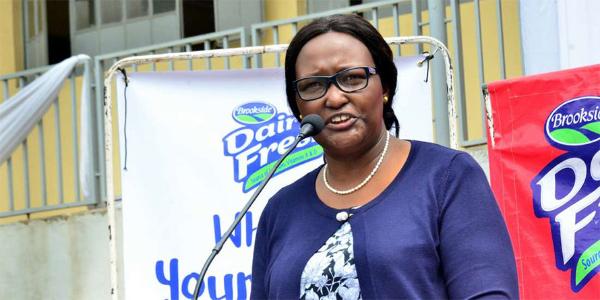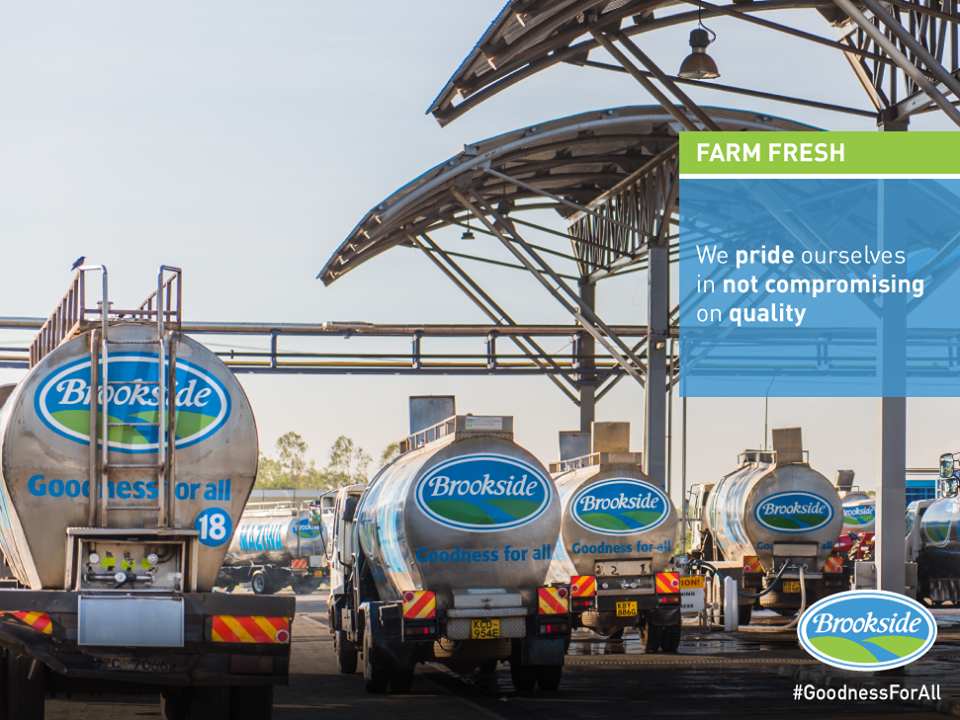
The leader fo milk processing in Kenya is Kenyatta-family owned Brookside Dairy Limited headquartered in Kiambu.
Now, in March last year, when the news broke out that the government was mulling passing then christened ‘Milk Bill 2019’, which among other things penalises directly selling of raw milk (what people in the rural area & Nairobi milk vendors depend on) from one mwananchi to the other. Authorities, especially the National Assembly came forth to refute that there was such a bill.
Kenya Dairy Board (KDB) on its part, owing to public pressure shelved the bill.
‘The Kenya Dairy Board wishes to inform all stakeholders, that the processing of the proposed regulations has been suspended to allow for consultations and further public participation,’ the press release said in part.
Fast forward, one year later, the bill is alive after shady public participation.
Online resources shows that in April 2020, the draft regulations for changes in the dairy sector which allegedly started public participation in March 2020 is ready to be passed by parliament.
What is very curious about this is that, as of March 2020, the country was already fearful of Coronavirus (COVID-19) pandemic and curfew followed soon thereafter.
Where was the public participation forums held in March 2020 in this time of stay at home and social distancing?
“The review of the Draft Dairy Regulations has been finalised. The document is ready for presentation to the public to give their input,” said KDB Managing Director Margaret Kibogy as reported by Daily Nation on March 1, 2020.
The Kenya Dairy Board was reported to be preparing to launch its review of draft dairy regulations on March 9 in Kakamega, Kitale, Garissa and Nyeri.
In a notice sent to producers in March, Ms Kibogy announced that the Dairy Regulations Taskforce will also collect views from producers in Kisumu, Uasin Gishu, Makueni, Marsabit, Kisii, Nakuru, Nyandarua, Meru, Mombasa, Embu and Nairobi counties.
It was also reported that the ‘taskforce is expected to complete its work on March 17 with the final public participation meeting at Kenya Institute of Curriculum Development in Ngara, Nairobi’.
Milk Monopoly
It is not a secret that the current first family have over the past 6 years monopolised milk sector.
Brookside Dairy which is owed by the Kenyatta-family has over the past few years acquired other competitors, cementing its position at the top of the milk industry at 40 percent market share in 2019. There are other changes that they’ve made in the industry since then to ‘beat competition’. Things such as banning milk from Uganda or taxing them more.
Acqusitions
Brookside started in 1993, it has taken advantage of the near-collapse of the Kenya Cooperative Creameries (KCC) after the later fell into loses.
Since then, and given the feeble challenge they receive from the New KCC, Brookside has acquired some competitors in the dairy industry.
Brookside acquired Molo Milk, owned by Buzeki Dairy in 2013.
In 2015, Brookside took over operations of leading Uganda dairy operator Sameer Agriculture and Livestock Limited (SALL). SALL which is a Sameer Group owned company, owns the Daima milk brand.
Other popular milk brands acquired by Brookside include Ilara, Tuzo, Lea, Ever fresh, Kilifi Milk, and all of Delamere’s milk estate (including Youghurts).
Kenyans are left with no choice. Even those who hate Kenyattas but love milk will most likely find themselves buying a milk brand that belongs to the Kenyattas in one way or another.
These acquisitions has placed Brookside’s market share at over 40%, followed by New KCC at 35%, the rest is shared by Githunguri Dairy Farmers Cooperative (10%) and other small players.
There are rumours that Brookside wants to take over Githunguri Dairy Farmers Cooperative, the producers of Fresha milk. If this goes through, Brookside, a single and PRIVATE entity, will command over half of the Kenyan milk market.
The Kenya Dairy Bill
In one of the proposals by the regulator, penalties and fines for various offences were pegged at a maximum of Sh500,000.
This is punitive to any farmer in Kenya in the rural areas and the milk vendors in Nairobi estates.
Though the proposals are subject to parliamentary approvals, this is what awaits Kenyans:
- The price of raw milk to be based on quality and safety parameters. Producers or distributors to test milk for aflatoxins, butterfat, bacterial count, somatic cell count, added water values and solids content.
- Producers or distributors who fail quality test milk before buying face imprisonment not exceeding 12 months or Sh500,000 fine or both.
- Producers who do not adhere to the board pricing model to face imprisonment not exceeding three months or Sh100,000 fine or both.
- The board to advise on price for different qualities, grades or types of diary produce. Board says pricing to be determined by incorporating values for quality-based payment system, value chain costs and approved sales margins.
- No diary dealer allowed to sell or import any diary equipment, material or additives without a permit issued by the milk board.
- All milk producers required to provide details about their products and location to buyers, and to provide such information to the board on request.
- All dairy dealers, on order issued by the board, to furnish their returns, reports and estimated or risk a Sh100,000 fine or three-month imprisonment or to both fine and jail term.
- All dairy dealers must have a valid certificate of registration. All dairy dealers, on order issued by the board, to furnish their returns, reports and estimated or risk a Sh100,000 fine or three-month imprisonment or to both fine and jail term.
- All dairy dealers must have a valid certificate of registration.
Kenyans should resist this law through the courts of law. Jubilee which is owned by the Kenyatta family are having a field day noting that most people are indoors, banned from crowding, so that means no protests (article 37 of the constitution), courts are not operational fully during this COVID-19, so they can sneak this law to be passed by low numbers in parliament (who are also practising social distancing). Appalling.
The regulations also provide that milk may only be sold in bulk through organised group of dairy farmers, which may include but not limited to cooperatives or registered companies, authorized by the dairy board to sell raw milk provided that the produce is not sold to consumers.
Although dairy farmers have been selling the product without the requirement of a license from KDB, the implementation of the regulations will mean that only those with the capability to process milk will be granted a license annually.
“A person shall not operate as a producer unless the person holds a license issued under these regulations,” the Licensing regulations state.
The Dairy Industry (Pricing of Dairy Produce) Regulations will determine the price of milk from the farmer.
License fees
Milk bar owners who will now be required to fork out Sh3,000 in license fees before they are allowed to trade. Mini dairy and dispenser licenses will now be charged at Sh6,000, cottage industry Sh4,000, processor license handling below 100,000 litres per day Sh25,000 while those above 100,000 litres per day is Sh50,000 and distributors Sh25,000.
The caught is that before a license is issued, the dairy board is required to inspect and validate whether any person taking part in the storage, handling, distribution or sale of licensed produce is suffering from any infectious or contagious disease or is not clean as a person or their clothing.
Kenyans should resist this law.
Kenyatta family tried to take over NEW KCC through the appointment of 81-year-old Matu Wamae but the octogenarian failed, even to control his bowels, and resigned a few months later.
My mom rears cows back in ocha and you are telling me she can’t even sell milk to her neighbors? Who came up with this stupid bill? https://t.co/e484if81Hc
— Simon Kaguru (@SymonKaguru) March 21, 2019


















